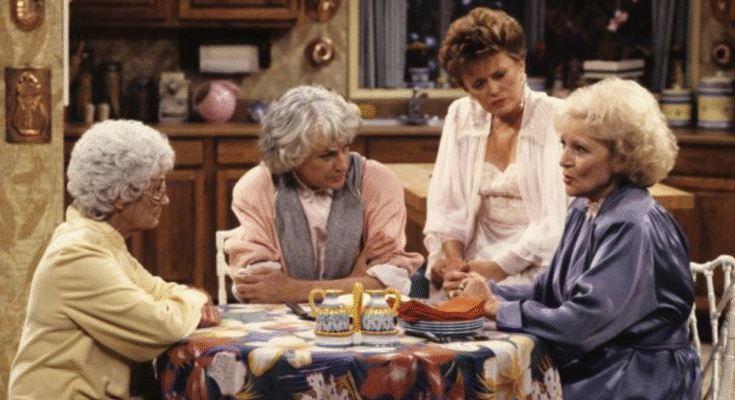Introduction: Seven Seasons of Gold
With 180 episodes spanning seven seasons, “The Golden Girls” created a treasure trove of television that ranges from light comedy to profound drama, from social commentary to personal revelation. While every episode contributes to the series’ legacy, certain episodes stand out as essential viewing—episodes that define characters, tackle important issues, or perfectly encapsulate what made the show revolutionary.
These essential episodes serve as both introduction for new viewers and touchstones for longtime fans. They represent the show at its best: funny, touching, socially conscious, and unafraid to challenge both its characters and its audience. Together, they form a curriculum in why The Golden Girls remains relevant, beloved, and influential decades after its finale.
Season 1: Establishing the Foundation
“Pilot” (Season 1, Episode 1)
The pilot episode masterfully establishes the premise, introduces the characters, and sets the tone for everything to follow. Blanche’s engagement to Harry, who turns out to be a bigamist, provides the crisis that bonds the women together. The episode efficiently establishes each character’s personality while showing how their differences create complementary strengths.
What makes this pilot essential is how fully formed the show arrives. Unlike many series that take time to find their voice, The Golden Girls knows exactly what it is from the first moment. The chemistry between the actresses is immediate, the writing is sharp, and the balance of humor and heart that would define the series is already perfect.
“Rose the Prude” (Season 1, Episode 3)
Rose’s first attempt at physical intimacy since Charlie’s death addresses senior sexuality with humor and sensitivity. Her fear that she might kill another man the way Charlie died provides comedy, but her genuine terror and grief provide depth. The episode establishes that the show will treat its characters’ romantic and sexual lives as legitimate and important.
This episode also showcases the support system the women provide each other, with each roommate offering different perspectives that help Rose overcome her fears. It demonstrates early that the show will tackle taboo subjects while maintaining dignity and humor.
“The Way We Was” (Season 1, Episode 25)
This flashback episode revealing how the women came to live together provides crucial backstory while demonstrating the show’s ability to balance multiple timelines and complex emotional narratives. Seeing the women at their most vulnerable—Dorothy freshly divorced, Rose newly widowed, Blanche financially struggling—adds depth to their present-day strength.
The episode shows that The Golden Girls can do more than situation comedy, creating genuine drama from the women’s histories while maintaining the humor that makes the show accessible.
Season 2: Deepening the Relationships
“Ladies of the Evening” (Season 2, Episode 2)
When the women are mistaken for prostitutes and arrested, the episode provides comedy while addressing ageism and sexism in law enforcement. The incident forces them to confront how society views older women who dress up and go out, challenging assumptions about appropriate behavior for their age.
The episode also showcases the women’s loyalty to each other, as they navigate the justice system together and refuse to be shamed for wanting to have a good time. It establishes that the show will challenge societal expectations while finding humor in absurd situations.
“Isn’t It Romantic?” (Season 2, Episode 5)
When Dorothy’s friend Jean, a lesbian, visits and develops feelings for Rose, the show handles homosexuality with remarkable sensitivity for 1986. The episode treats Jean’s sexuality matter-of-factly while addressing the characters’ varied comfort levels with same-sex attraction.
This groundbreaking episode showed that The Golden Girls would tackle controversial subjects that other sitcoms avoided, using humor and humanity to promote understanding and acceptance.
“Twas the Nightmare Before Christmas” (Season 2, Episode 11)
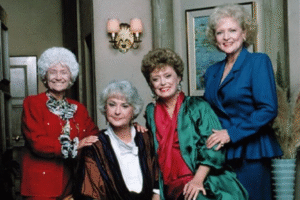
When the women are robbed at gunpoint on Christmas Eve, the episode addresses trauma, vulnerability, and resilience. Each woman’s reaction to the violation of their home reveals character depth while showing how shared trauma can strengthen bonds.
The episode demonstrates the show’s ability to find hope and humor even in dark situations, with the women ultimately refusing to let fear diminish their Christmas spirit or their commitment to each other.
Season 3: Peak Performance
“Letter to Gorbachev” (Season 3, Episode 6)
When Rose writes to Soviet leader Mikhail Gorbachev about world peace and receives a response, the episode addresses Cold War anxieties through Rose’s naive optimism. The arrival of a Soviet official provides comedy while touching on real fears about nuclear war and international relations.
This episode showcases Rose’s character perfectly—her simplicity hiding wisdom, her naivety accomplishing what sophistication cannot. It also demonstrates the show’s ability to address global issues through personal stories.
“A Visit from Little Sven” (Season 3, Episode 9)
Rose’s cousin Sven arrives from Sweden, creating a love triangle when both Rose and Blanche fall for him. The competition between friends over a man could be destructive, but the episode shows how strong friendship can survive romantic rivalry when the women ultimately choose each other over Sven.
This episode explores the tension between friendship and romance while showcasing both women’s different approaches to attraction and competition.
“My Brother, My Father” (Season 3, Episode 17)
When Sophia’s priest brother Angelo visits and announces he’s leaving the priesthood to marry, the episode addresses religion, family expectations, and late-life changes. Sophia’s struggle to accept Angelo’s choice reflects broader themes about tradition versus personal happiness.
The episode shows that major life changes are possible at any age and that family relationships continue evolving throughout life.
Season 4: Social Commentary
“The Days and Nights of Sophia Petrillo” (Season 4, Episode 2)
Sophia’s attempt to start a business selling sandwiches addresses senior entrepreneurship and the desire to remain productive and relevant. Her determination to contribute financially despite her age challenges assumptions about older adults’ capabilities and ambitions.
The episode balances comedy with serious commentary about the economic challenges facing seniors and their need for purpose beyond mere survival.
“Sophia’s Choice” (Season 4, Episode 22)
When Sophia’s friend Lillian is denied a life-saving operation due to age, Sophia must decide whether to break her friend out of the hospital. The episode addresses medical rationing, quality of life decisions, and the healthcare system’s treatment of elderly patients.
This powerful episode shows Sophia as more than comic relief, giving her dramatic weight while addressing serious healthcare issues affecting older adults.
“Yes, We Have No Havanas” (Season 4, Episode 1)
Blanche’s relationship with Fidel Santiago, complicated by misunderstandings about his wealth and status, reveals her capacity to value emotional connection over financial security. The episode challenges Blanche’s materialistic tendencies while showing her growth.
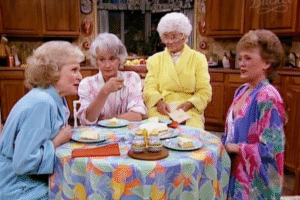
This episode demonstrates character development, showing that even established characters can surprise us and themselves with their choices.
Season 5: Character Evolution
“72 Hours” (Season 5, Episode 1)
Rose’s potential HIV exposure from a blood transfusion addresses the AIDS crisis with remarkable sensitivity. The episode educates about HIV transmission while showing the human cost of fear and misinformation. Rose’s terror and her friends’ support provide both drama and important social messaging.
This groundbreaking episode brought AIDS into mainstream American homes, humanizing those affected while combating stigma and misinformation.
“Sick and Tired” Parts 1 & 2 (Season 5, Episodes 1-2)
Dorothy’s struggle with chronic fatigue syndrome and the medical establishment’s dismissal of her symptoms resonated with countless viewers experiencing similar medical gaslighting. Her fight for diagnosis and respect highlights healthcare’s failures in treating women’s health concerns seriously.
These episodes showcase Dorothy at her most vulnerable and determined, while addressing systemic problems in healthcare that remain relevant today.
“Ebbtide’s Revenge” (Season 5, Episode 11)
When Phil dies, Sophia’s grief and guilt over never fully accepting his cross-dressing create one of the series’ most powerful episodes. Her journey toward posthumous acceptance and Angela’s confrontation force Sophia to confront her prejudices and regrets.
This episode deals with complicated grief, showing that death doesn’t resolve family conflicts but can provide opportunities for understanding and growth.
Season 6: Mature Themes
“Blanche Delivers” (Season 6, Episode 1)
When Blanche’s daughter Rebecca comes to Miami pregnant through artificial insemination, the episode addresses single motherhood by choice and reproductive technology. Blanche’s initial disapproval and eventual acceptance show character growth and changing social attitudes.
This episode was ahead of its time in treating artificial insemination as a legitimate family-building choice, normalizing non-traditional paths to parenthood.
“Miles to Go” (Season 6, Episode 15)
The revelation that Miles is in witness protection transforms Rose’s simple romance into complex drama. Her decision to stay with him despite danger and deception shows Rose capable of handling sophisticated adult challenges.
This episode elevates Rose beyond simple naivety, showing her as a complex woman capable of difficult decisions and genuine courage.
“There Goes the Bride” Parts 1 & 2 (Season 6, Episodes 16-17)
When Stan and Dorothy nearly remarry, the episodes explore the powerful pull of history and familiarity versus the need for growth and respect. Dorothy’s near-mistake and ultimate rejection of Stan shows her growth throughout the series.
These episodes provide crucial character development for Dorothy, showing how far she’s come from the bitter divorcée of season one.
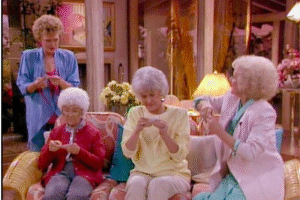
Season 7: The Conclusion
“The Case of the Libertine Belle” (Season 7, Episode 2)
During a murder mystery weekend, someone is actually murdered, and the women must solve the real crime. This format-breaking episode showcases each character’s strengths while providing pure entertainment that demonstrates the show’s versatility.
The episode proves that even in its final season, the show could still surprise and innovate while maintaining its core identity.
“Home Again, Rose” Parts 1 & 2 (Season 7, Episodes 8-9)
Rose’s heart attack forces all characters to confront mortality and the fragility of their chosen family. The aftermath, dealing with Rose’s fear and the others’ realization of potential loss, provides serious drama while affirming their bonds.
These episodes address aging’s realities while showing that friendship provides strength in facing life’s challenges.
“One Flew Out of the Cuckoo’s Nest” Parts 1 & 2 (Season 7, Episodes 25-26)
The series finale, with Dorothy’s marriage to Lucas and departure from Miami, provides closure while acknowledging the bittersweetness of change. Dorothy gets her happy ending, but at the cost of leaving her chosen family.
This finale respects the show’s history while providing genuine resolution. Dorothy’s goodbye to each friend reveals the depth of their relationships, while her departure shows that growth sometimes requires difficult choices.
Thematic Essential Episodes
On Aging and Ageism
“Job Hunting” (Season 1, Episode 22): Rose faces age discrimination in employment
“Old Friends” (Season 3, Episode 1): Sophia’s friend Alvin develops Alzheimer’s
“Not Another Monday” (Season 5, Episode 7): Sophia’s friend Martha contemplates suicide
On Family Dynamics
“Family Affair” (Season 2, Episode 7): Family members disappoint the women
“Mother’s Day” (Season 3, Episode 25): The women evaluate their mothering
“Motherload” (Season 7, Episode 3): Blanche’s relationship with her mother
On Romance and Sexuality
“In a Bed of Rose’s” (Season 1, Episode 15): Rose has her first sexual encounter
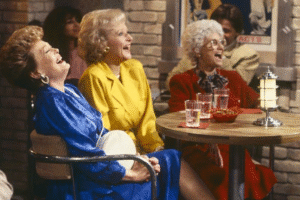
“Bedtime Story” (Season 2, Episode 17): The women recall their first sexual experiences
“Journey to the Center of Attention” (Season 7, Episode 18): Blanche deals with competition
On Social Issues
“The Flu” (Season 1, Episode 21): The women deal with health and medical care
“Mixed Blessings” (Season 3, Episode 23): Dorothy’s son plans an interracial marriage
“Brother, Can You Spare That Jacket?” (Season 4, Episode 8): The women encounter homeless people
On Friendship
“The Triangle” (Season 1, Episode 5): Rose and Dorothy compete for the same man
“Dorothy’s New Friend” (Season 3, Episode 15): Dorothy befriends a snob who rejects the others
“Rites of Spring” (Season 4, Episode 23): The women fight and reconcile
Hidden Gems: Overlooked Excellence
“The Audit” (Season 3, Episode 10)
When Dorothy is audited by the IRS, Stan’s interference creates chaos. This episode perfectly balances comedy with Dorothy’s character development, showing her ability to handle crisis while maintaining dignity.
“Bang the Drum, Stanley” (Season 4, Episode 5)
Stan fakes illness to win Dorothy back, exploring manipulation, trust, and the difficulty of fully severing long relationships. The episode shows Dorothy’s growth in recognizing and resisting manipulation.
“Love Me Tender” (Season 4, Episode 14)
When Dorothy dates a married man, the episode explores moral complexity and loneliness. Her struggle between desire and ethics shows that even good people face moral dilemmas.
“Dancing in the Dark” (Season 5, Episode 6)
Rose and Miles encounter relationship challenges that test their compatibility. The episode shows that even good relationships require work and compromise.
“What a Difference a Date Makes” (Season 6, Episode 22)
When Dorothy dates a younger man, the episode addresses age-gap relationships and societal double standards. Her confidence in pursuing the relationship shows growth from earlier insecurities.
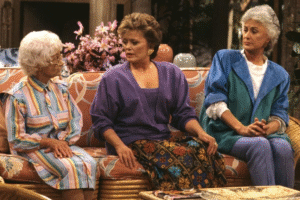
How to Watch: Different Approaches
For New Viewers
Start with the pilot, then sample essential episodes from each season to understand character development and show evolution. Focus on episodes that establish relationships and character backgrounds before moving to more complex storylines.
For Studying Social Issues
Focus on episodes addressing AIDS, homosexuality, aging discrimination, and healthcare. These episodes showcase the show’s progressive politics and willingness to tackle controversial topics.
For Character Development
Track each character’s growth through relationship episodes, family visits, and personal crises. Notice how characters evolve while maintaining core identities.
For Pure Entertainment
Focus on comedy-heavy episodes, mystery episodes, and those featuring memorable guest stars. These episodes showcase the show’s entertainment value beyond social significance.
The Episodes That Define The Legacy
Certain episodes transcend their narrative function to become cultural touchstones:
“72 Hours” educated America about AIDS
“Isn’t It Romantic?” normalized homosexuality
“Sick and Tired” validated chronic illness
“Ebbtide’s Revenge” addressed complicated grief
The finale showed that growth requires change
These episodes prove that situation comedy can address serious issues, that older women’s stories matter, and that entertainment and education need not be separate.
Conclusion: Every Episode a Gem
While these essential episodes provide the backbone of The Golden Girls’ legacy, the show’s true genius lies in its consistency. Even “lesser” episodes maintain quality writing, performance, and respect for characters and audience that defines great television.
The essential episodes aren’t just those that tackled important issues or provided major character development. They’re also the quiet episodes where the women simply lived their lives, shared cheesecake, and demonstrated that friendship sustains us through everything.
Ultimately, The Golden Girls’ essential episodes are those that remind us why we return to the show: for the laughter, the tears, the friendship, and the radical proposition that four older women living together in Miami could change television and touch millions of hearts.
These episodes prove that The Golden Girls wasn’t just a sitcom but a cultural phenomenon that used laughter to teach, friendship to heal, and cheesecake to bring us all together. Each essential episode adds another layer to the show’s legacy, creating a body of work that remains as vital, funny, and moving today as when it first aired.
Thank you for being a friend, and for watching.
